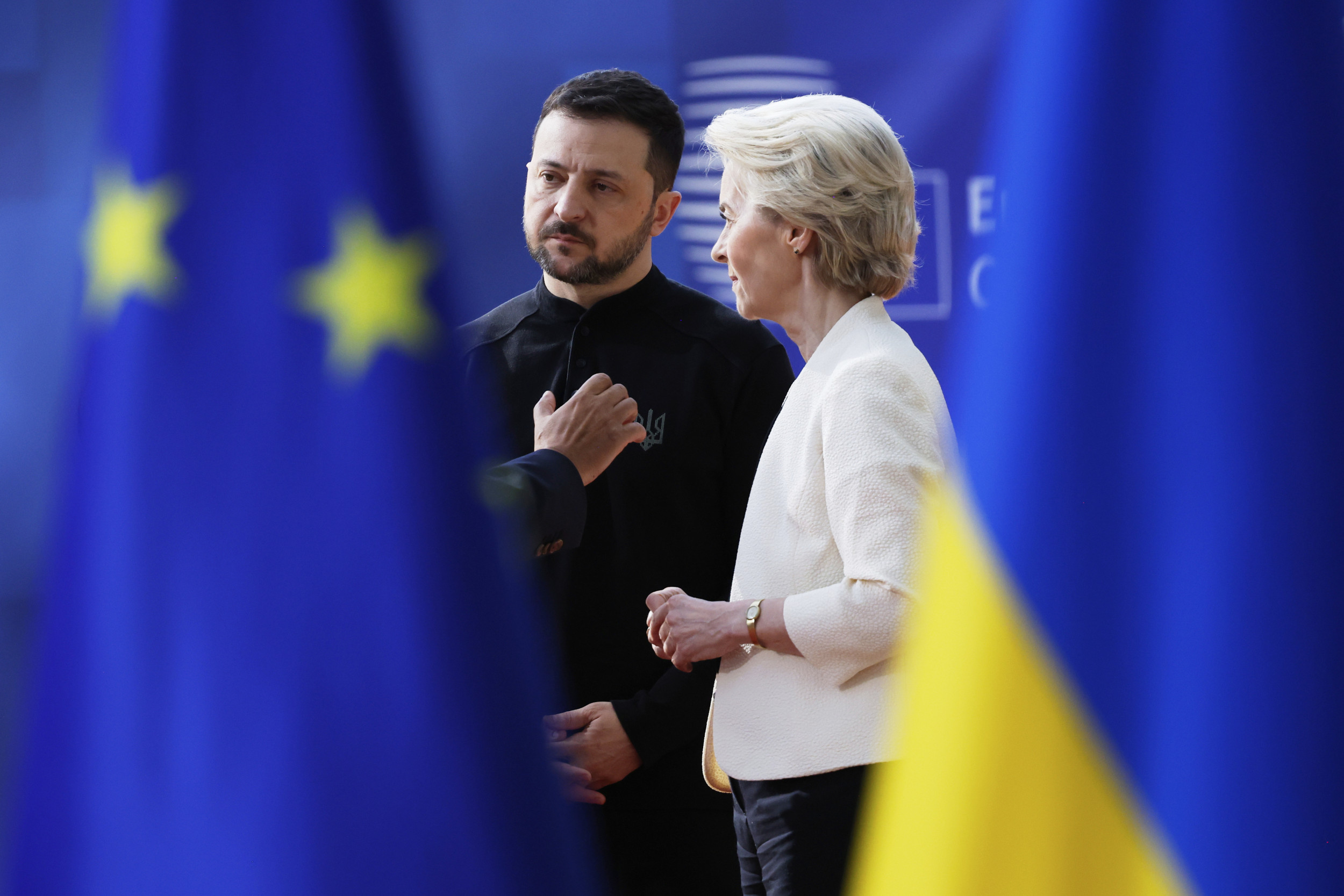Ted Galen Carpenter
April 11, 2025
President Trump should avoid a snare of his own making and extricate the United States from the war between Russia and Ukraine.
During the 2024 presidential campaign, Donald Trump repeatedly indicated that he expected the war between Ukraine and Russia to end quickly once he entered the oval office. He even boasted that he could bring a halt to the fighting within 24 hours. Trump has not been able to achieve his objective. Indeed, he has not been able to secure even a comprehensive ceasefire between Kyiv and Moscow. The most significant accomplishments to date are the agreements between the warring parties to refrain from attacks on infrastructure and to allow some consumer maritime traffic in the Black Sea to resume. Even those limited agreements are marked by numerous alleged violations by both sides.
Trump’s hopes for a wider ceasefire, much less a formal peace agreement, are fading fast, and his level of frustration is beginning to soar. His annoyance with Ukraine’s president Volodymr Zelensky has been apparent on several occasions, most notably during the infamous White House confrontation between Zelensky and both Trump and Vice President J.D. Vance on February 28, 2025. Recently, however, Trump’s irritation with Vladimir Putin also has increased. On one occasion, the president expressed extreme anger at the Russian leader for dragging his feet on a more comprehensive ceasefire. Other administration officials also stated that it was time for Putin to make up his mind about whether or not he wants a peace accord.
Trump seemingly has wandered into a trap of his own making. Moreover, it is a snare that resembles the one that kept the United States entangled militarily in Afghanistan throughout most of his first term, despite his rhetoric during the 2016 presidential campaign about quickly extracting U.S. military forces from that quagmire. Once in office, Trump allowed hawkish advisers, such as Secretary of Defense James Mattis, to talk him into abandoning his own instincts and following the advice of “experts” who had mired the United States in the interminable Afghan conflict. In the case of Ukraine, there are troubling signs that Trump may be responding favorably to hawks in both the United States and Europe who insist that failing to back Kyiv’s unrealistic position would amount to a shameful betrayal of a beleaguered democracy.
I have long argued that despite his self-promoted image of being an advocate of a restrained, realistic U.S. foreign policy, Trump’s actual conduct has fallen far short of that standard. At best, he has encouraging instincts on a few foreign policy issues—and even in those cases, his tendencies are vague and fragile. Trump’s wavering stance on the Ukraine situation is the latest example of his unreliability.
Washington’s principal objective should be to terminate its support for Kyiv regardless of the outcome for Ukraine. By becoming involved in the armed conflict between Ukraine and Russia, Joe Biden’s administration needlessly endangered the American people. Washington has not only equipped Kyiv’s forces with increasingly deadly weaponry, but also has shared military intelligence, including targeting data that have enabled Ukraine to shoot down Russian aircraft (including at least one military transport plane with more than 100 personnel aboard) and sink naval vessels. Moscow would be well within its rights under international law to regard such U.S. behavior as acts of war and respond accordingly. We are quite fortunate that the Kremlin has not yet responded to U.S. provocations in that fashion, but Trump is pushing our luck.
The Trump administration needs to recognize certain realities and adjust U.S. policy appropriately. First, there is virtually no chance that Kyiv and its Western cheerleaders are going to secure a peace treaty with the provisions they seek. No government in Moscow will agree to an accord that returns Crimea and all of the other conquered territories to Kyiv. Likewise, no Russian government will accept a peace settlement that gives Ukraine the right to join NATO. Indeed, the issue of NATO’s desire to make Ukraine a major military asset sitting on Russia’s border was the principal cause of the current crisis. Russia is slowly, but inexorably, winning its military campaign in Ukraine, so it is highly improbable that Putin and his associates will make the concessions Kyiv and its NATO backers demand.
The European powers may have some hard decisions to make about how far they are willing to go to placate Russia and restore peace on the continent. But America’s interests are not congruent with those of Europe, and they should never have been viewed in that way. Americans can and should see the Ukraine-Russia war for what it is: a conflict between two autocratic powers on the other side of the world. It is not and never has been an existential confrontation between democracy and autocracy. Propaganda to the contrary should be treated with the contempt it deserves.
Even more pertinent, the dispute is not even remotely worth the level of cost and risk the United States has incurred to this point. It definitely is not worth persisting in such a reckless course. Trump’s constitutional role is not to resolve a war between two feuding autocracies. His proper role should be to extricate the United States from an unrewarding, potentially very dangerous situation.

 original.antiwar.com
original.antiwar.com
April 11, 2025
President Trump should avoid a snare of his own making and extricate the United States from the war between Russia and Ukraine.
During the 2024 presidential campaign, Donald Trump repeatedly indicated that he expected the war between Ukraine and Russia to end quickly once he entered the oval office. He even boasted that he could bring a halt to the fighting within 24 hours. Trump has not been able to achieve his objective. Indeed, he has not been able to secure even a comprehensive ceasefire between Kyiv and Moscow. The most significant accomplishments to date are the agreements between the warring parties to refrain from attacks on infrastructure and to allow some consumer maritime traffic in the Black Sea to resume. Even those limited agreements are marked by numerous alleged violations by both sides.
Trump’s hopes for a wider ceasefire, much less a formal peace agreement, are fading fast, and his level of frustration is beginning to soar. His annoyance with Ukraine’s president Volodymr Zelensky has been apparent on several occasions, most notably during the infamous White House confrontation between Zelensky and both Trump and Vice President J.D. Vance on February 28, 2025. Recently, however, Trump’s irritation with Vladimir Putin also has increased. On one occasion, the president expressed extreme anger at the Russian leader for dragging his feet on a more comprehensive ceasefire. Other administration officials also stated that it was time for Putin to make up his mind about whether or not he wants a peace accord.
Trump seemingly has wandered into a trap of his own making. Moreover, it is a snare that resembles the one that kept the United States entangled militarily in Afghanistan throughout most of his first term, despite his rhetoric during the 2016 presidential campaign about quickly extracting U.S. military forces from that quagmire. Once in office, Trump allowed hawkish advisers, such as Secretary of Defense James Mattis, to talk him into abandoning his own instincts and following the advice of “experts” who had mired the United States in the interminable Afghan conflict. In the case of Ukraine, there are troubling signs that Trump may be responding favorably to hawks in both the United States and Europe who insist that failing to back Kyiv’s unrealistic position would amount to a shameful betrayal of a beleaguered democracy.
I have long argued that despite his self-promoted image of being an advocate of a restrained, realistic U.S. foreign policy, Trump’s actual conduct has fallen far short of that standard. At best, he has encouraging instincts on a few foreign policy issues—and even in those cases, his tendencies are vague and fragile. Trump’s wavering stance on the Ukraine situation is the latest example of his unreliability.
Washington’s principal objective should be to terminate its support for Kyiv regardless of the outcome for Ukraine. By becoming involved in the armed conflict between Ukraine and Russia, Joe Biden’s administration needlessly endangered the American people. Washington has not only equipped Kyiv’s forces with increasingly deadly weaponry, but also has shared military intelligence, including targeting data that have enabled Ukraine to shoot down Russian aircraft (including at least one military transport plane with more than 100 personnel aboard) and sink naval vessels. Moscow would be well within its rights under international law to regard such U.S. behavior as acts of war and respond accordingly. We are quite fortunate that the Kremlin has not yet responded to U.S. provocations in that fashion, but Trump is pushing our luck.
The Trump administration needs to recognize certain realities and adjust U.S. policy appropriately. First, there is virtually no chance that Kyiv and its Western cheerleaders are going to secure a peace treaty with the provisions they seek. No government in Moscow will agree to an accord that returns Crimea and all of the other conquered territories to Kyiv. Likewise, no Russian government will accept a peace settlement that gives Ukraine the right to join NATO. Indeed, the issue of NATO’s desire to make Ukraine a major military asset sitting on Russia’s border was the principal cause of the current crisis. Russia is slowly, but inexorably, winning its military campaign in Ukraine, so it is highly improbable that Putin and his associates will make the concessions Kyiv and its NATO backers demand.
The European powers may have some hard decisions to make about how far they are willing to go to placate Russia and restore peace on the continent. But America’s interests are not congruent with those of Europe, and they should never have been viewed in that way. Americans can and should see the Ukraine-Russia war for what it is: a conflict between two autocratic powers on the other side of the world. It is not and never has been an existential confrontation between democracy and autocracy. Propaganda to the contrary should be treated with the contempt it deserves.
Even more pertinent, the dispute is not even remotely worth the level of cost and risk the United States has incurred to this point. It definitely is not worth persisting in such a reckless course. Trump’s constitutional role is not to resolve a war between two feuding autocracies. His proper role should be to extricate the United States from an unrewarding, potentially very dangerous situation.

Trump Must Cut the Ukraine Albatross Loose - Antiwar.com
President Trump should avoid a snare of his own making and extricate the United States from the war between Russia and Ukraine. During the 2024 presidential campaign, Donald Trump repeatedly indicated that he expected the war between Ukraine and Russia to end quickly once he entered the oval...










